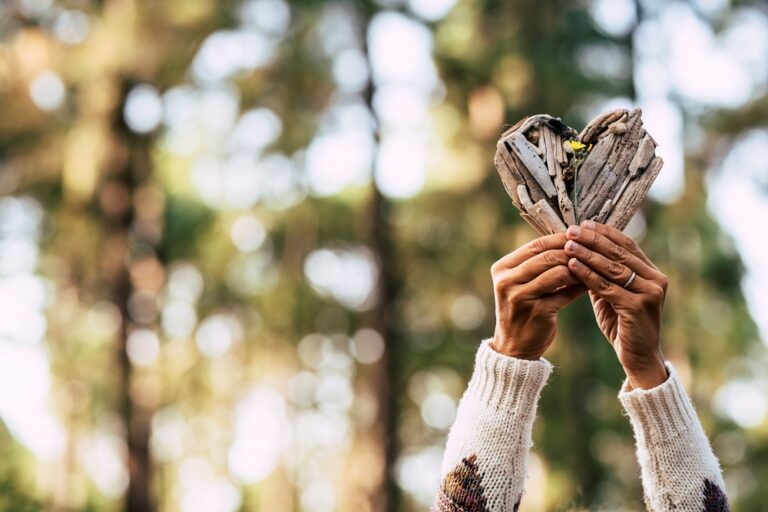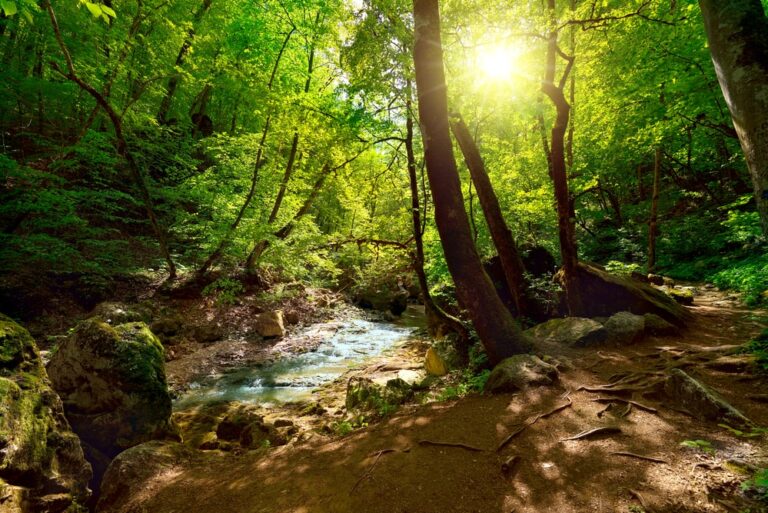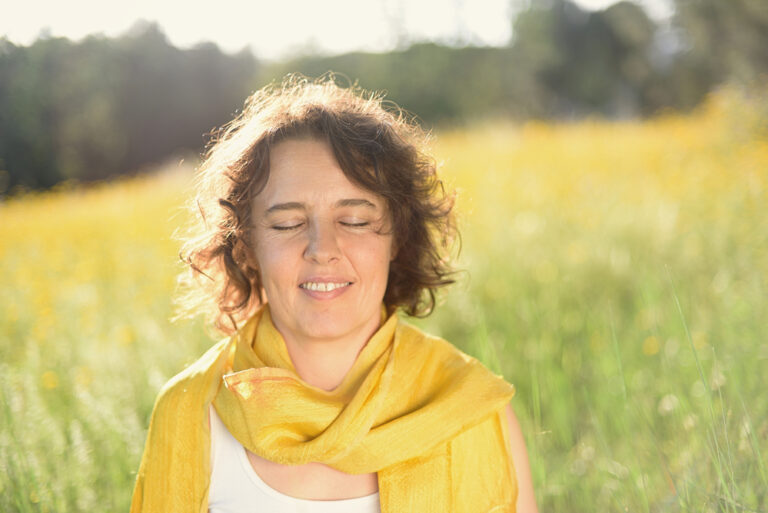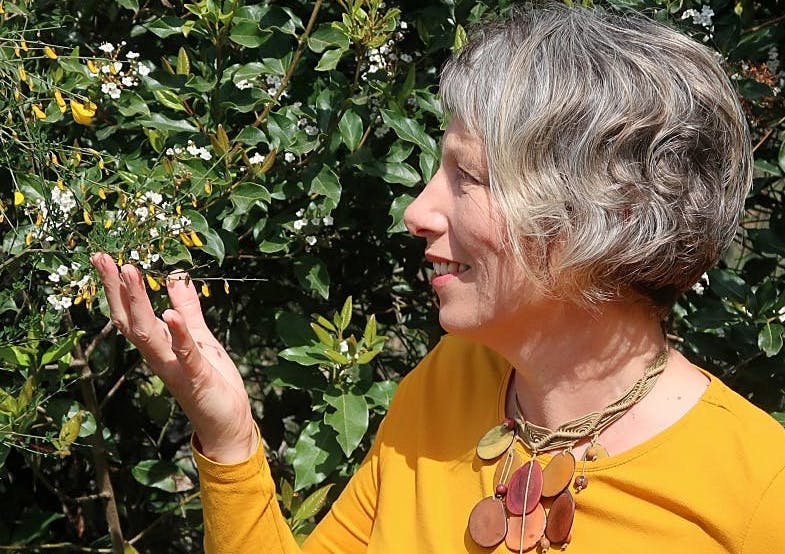7 Vital Lessons From Nature To Help You Flourish
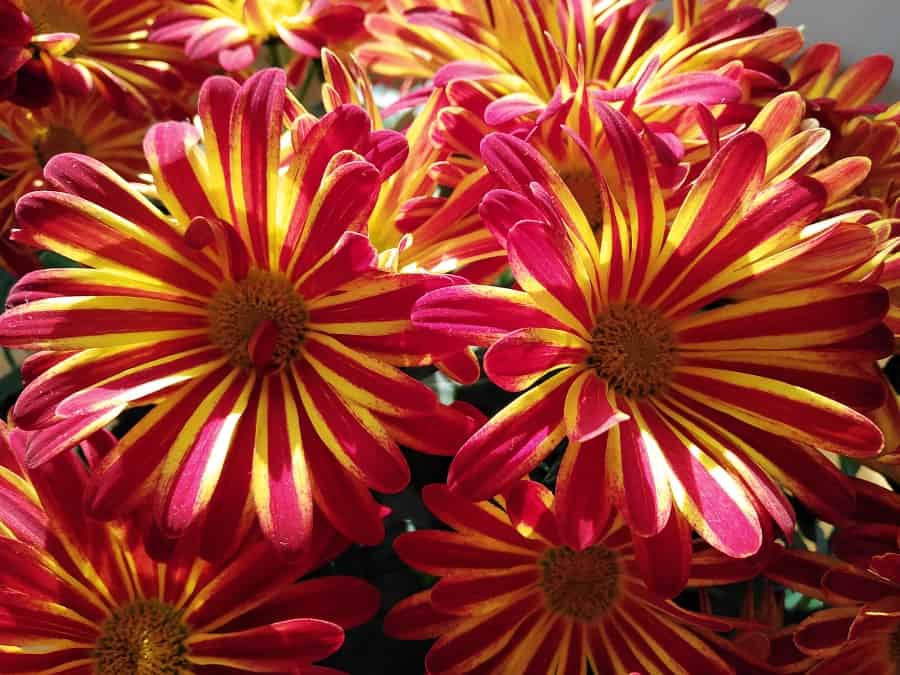
If we were to treat ourselves a bit more like nature instead of constantly striving and pushing ourselves too hard, we would fare better, I believe. Nature can teach us a lot about being kinder to ourselves.
You’ve only got to look at a garden or experience the change of seasons to appreciate that nature, and life, is cyclical. There are times for growth spurts and periods of rest and renewal.
There’s little point trying to grow daffodils in the heat of July or look for fresh leaf buds in the depth of winter but we expect our bodies to relentlessly perform day after day. It’s no wonder we’re often knackered!
The notion of seasons and growth phases is especially relevant for women and harnessing the ebbs and flows of our energies can help us to really flourish.
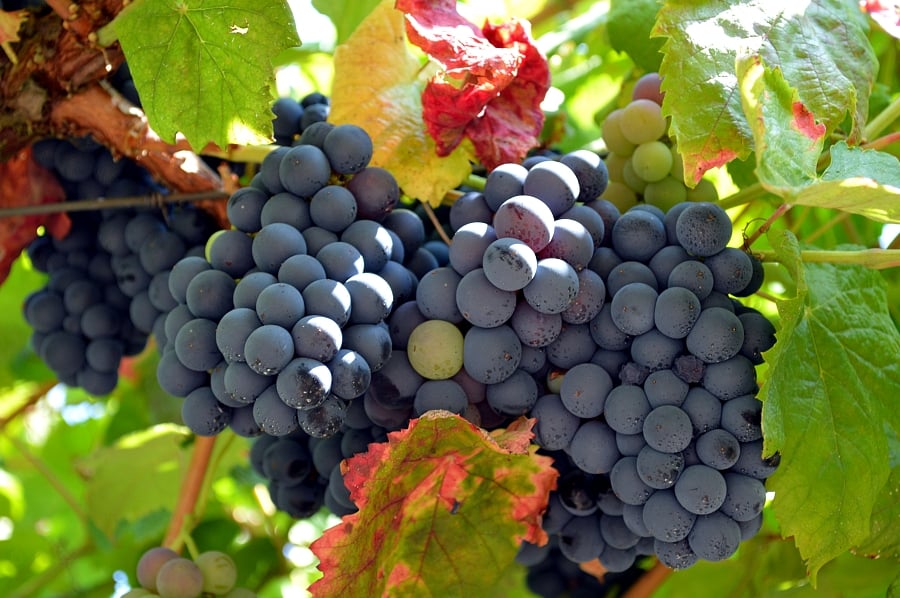
1. Getting from seed to fruit doesn’t happen overnight
A lot needs to happen for a seed to even germinate, let alone survive long enough to grow into a mature plant that flowers and eventually bears fruit. A seedling needs the right nutrients and exposure to the sun in order to thrive.
When you’re feeling frustrated at what seems like a lack of progress, try to be patient with yourself.
Notice how far you’ve come already, even if you still have a way to go to reach your goal. Accept where you are right now, and don’t forget to celebrate the small steps you make in the right direction.
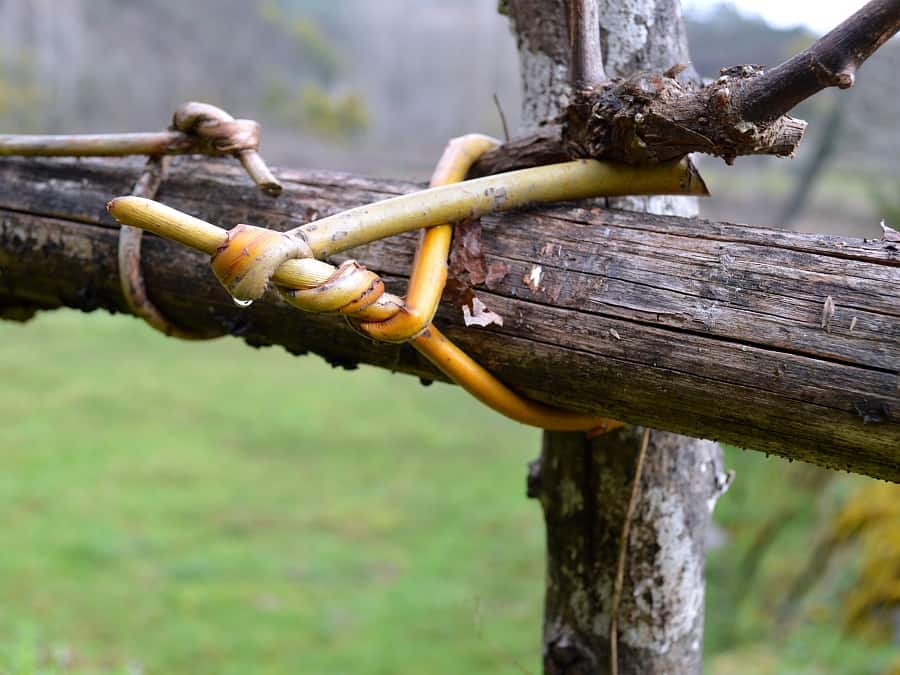
2. Everything has its season
Just as nature goes through periods of bright, energetic production before bearing fruit then hunkering down for winter, you, too, have seasons. For women who are menstruating, you are likely to experience 4 seasons in each of your cycles:
Winter often begins on day 1 of your bleed and is typically a time for rest and replenishment and connecting with your inner wisdom rather than trying to be sociable.
Spring energy has many women raring to go after their period ends. It’s a great time to start planning how to put new ideas into action but it’s important to pace yourself so you have energy left for the next phase.
Summer coincides with ovulation and being fertile so it’s usually when you’re at your most captivating and appealing and feel like you’re on top of the world.
Autumnal energy kicks in once the progesterone starts to take effect and this is often a turbulent time for women in terms of emotions. You might well feel like getting organised and ready to withraw and conserve your energies for your ‘winter’.

If you’d like to learn more about your menstrual cycle, I highly recommend reading Period Power by Maisie Hill. You’ll learn things about your own body that every woman should know and come to view your periods as more than an inconvenience.
If you’re already quite in touch with your spirituality, you might enjoy Wild Power but I wouldn’t start with that if woo woo stuff puts you off. It’s a fascinating read though and I love the idea of taking myself off on a solo retreat for a Big Bleed. Too bad I’m approaching menopause and my periods are all over the place these days!
If you’ve already gone through the menopause or aren’t a menstruating woman, try getting in tune with the phases of the moon to experience cyclical shifts in energy throughout each month.
Inner Seasons have some beautiful illustrated clocks to help you know where you are in your cycle and what activities would be ideal for that kind of energy.
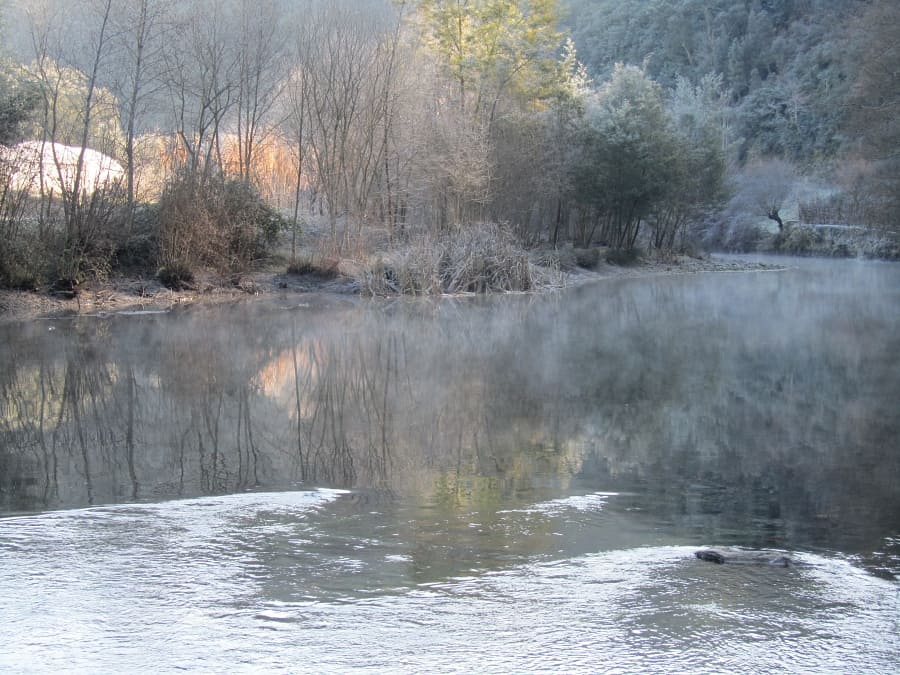
3. ‘Wintering’ as a time for repair and regrouping
During the winter months, nature is quietly doing what it needs to in order to survive harsh weather conditions and, in the case of deciduous plants, find the energy for regrowth come spring.
When we as humans find ourselves going through tough times, we would do well to recognise that wintering is a good thing. Forced or unplanned periods of inactivity are often the times when we get to be creative about how we emerge from the dark times.
If you’re growing the roots for a new you, that’s just as important as the dazzling flower you’re not ready to be right now.
Read Wintering by Katherine May for a personal account of wintering in action.
Or Struggle by Grace Marshall.
4. Nothing stays the same
Just as the clouds are constantly shifting, or the breeze rustles leaves, or an ant scurries across a wall under the weight of a giant piece of leaf, nothing is constant in nature. Not even mountains remain unchanged, although their rate of change is too slow for us to perceive.
The same is true for our emotions, thoughts and experiences. They are all fleeting and each of us is continually changing, on a celular level and beyond.
Recognising this can help you cherish your positive moments and take comfort in the knowledge that the not so pleasant times will pass.
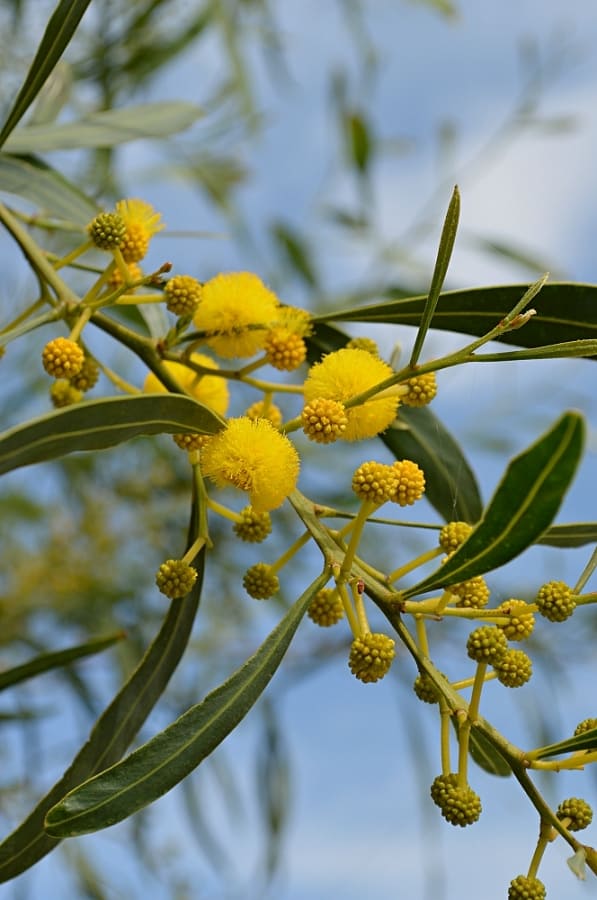
5. Nurture your ecosystems
I am fascinated by the seemingly unrelated connections in some of nature’s ecosystems and the way in which the well-being of one part depends on other species and conditions.
Our human bodies are not only part of a much larger ecosystem, we also have thousands of interdependent reactions and processes taking place within us.
What do you need to make your inner and outer ecosystems perform optimally? Do you need a day off, time with a friend, a good cry, a walk in nature or to drink more water?
Getting to know your internal and external needs will help you avoid slipping into unhealthy coping strategies like reaching for the wine or chocolate or doom-scrolling on social media.
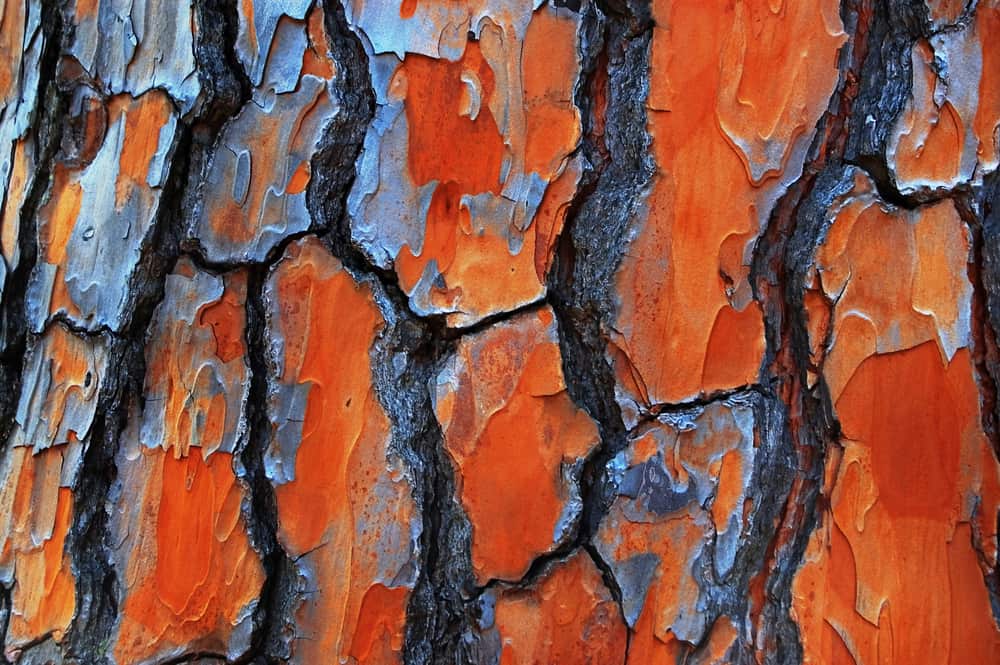
6. Set protective boundaries
For plants, this could be a thick layer of bark or sharp bristles to deter insects, animals and fungi from eating away at their life force.
As humans, especially women who are inherently wired to put the needs of others before themselves, it’s important to protect our energy and emotions by setting boundaries with others.
It can be hard to start saying no, especially when others see you as a bit of a doormat, but once you get the hang of it, you’ll find you have more time and people respect you more.
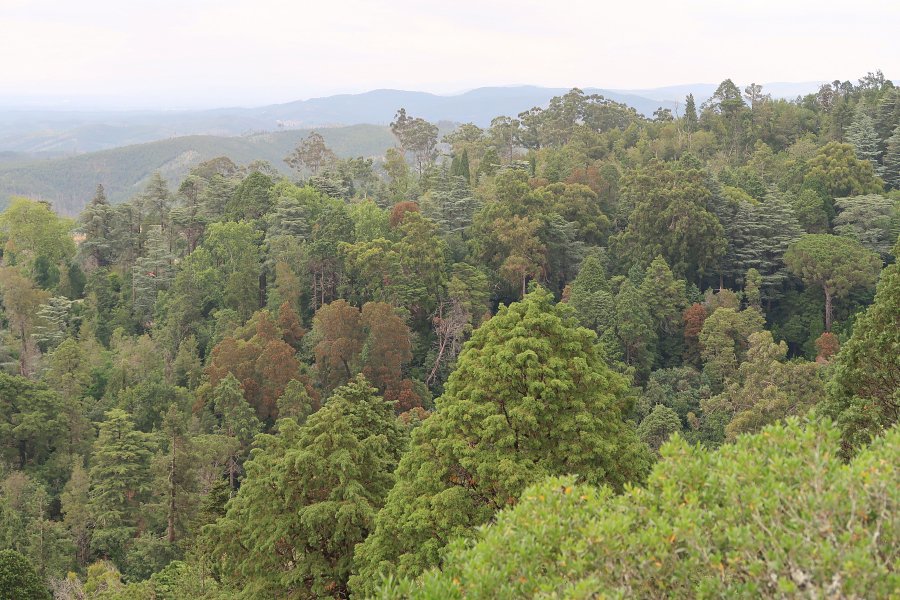
7. Trees and humans need community to thrive
I’ve been reading The Hidden Life of Trees by Peter Wohlleben and it’s incredible to learn the ingenious ways in which trees work together as a network. They help weak trees in need and send warnings to other trees so that they can protect themselves from attack.
People need each other too, even the most independent among us. Some of us are naturally good at being in communities while others, like me, find it more of a challenge. Either way, it’s worth doing if you want to thrive – there’s only so much you can do on your own.
Join our Women Connecting For Wellbeing Community, which is a safe space full of wonderful supportive women.
I hope that’s given you some inspiration for looking to nature as a guide for well-being.
If you haven’t already done so, why not get your hands on a free copy of my nature connection activities to help you destress?

